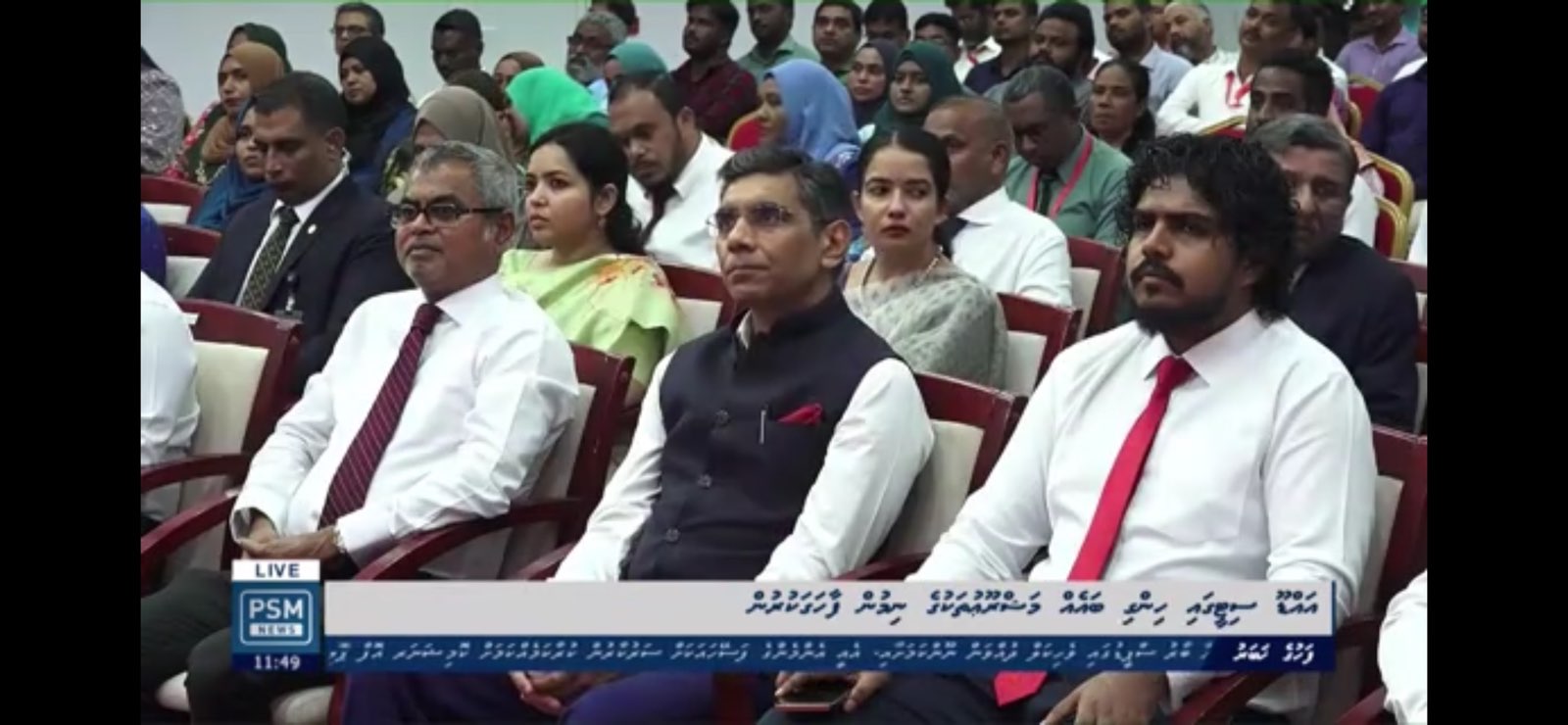“… like a temple resting on two pillars. If they come too close to each other the temple will collapse.” — Khalil Gibran once wrote, encapsulating the delicate balance necessary in any relationship. On a day when the clouds hung low over the archipelago, casting a muted light on the tarmac of Gan International Airport, an unusual pair of pillars stood in sight, a tableau of diplomacy and irony.
Without the presence of the fluttering tricolor, but with an Indian Army officer standing at attention, the External Affairs Minister of India descended the aircraft’s steps, his every move watched by an audience that included the very man who once was one of India’s loudest detractors in the Maldives.
This man, now an elected MP, in the receiving line with a calmness that belied his past. Just a few years ago, his words were weapons, his speeches fiery and unrelenting against what he termed as India’s overreach into Maldivian sovereignty. His rhetoric ignited debates across the archipelago, his voice a rallying cry for a nation that has often walked a tightrope between the superpowers of the Indian Ocean.
Yet here he was, dressed in white, a red tie punctuating the simplicity of his attire, a picture of composure as he awaited the Indian envoy. The transformation was striking, not just for its contrast but for the story it told about the evolving dance of diplomacy in the Maldives.
For those who remember, his earlier years in opposition were defined by a fervor that bordered on the radical. Indian diplomats in Malé found themselves at the center of his verbal onslaughts, his accusations wrapped in a nationalist narrative that garnered both support and scorn. He harassed, he criticized, he called for action against what he perceived as undue Indian influence.
But time, it seems, has a way of softening even the sharpest edges. The firebrand of yesterday now finds himself in the seat of power, where the responsibilities of governance demand a more measured approach. Today, he no longer shouts from the rooftops but listens quietly in the halls of power. The man who once burned bridges now stands ready to build them.
As the Indian External Affairs Minister approached, the MP’s eyes betrayed no emotion. Was this the same man who had once vowed to push India out of Maldivian affairs? Or had the weight of office, the burden of representing his constituents, tempered his previous hostility?
Diplomacy, after all, is a game of survival. In the Maldives, where every island is a stage and every politician an actor, roles can change as quickly as the tides. Today, the MP, an Addu boy, is a host, a role that demands a different kind of performance — one where the lines between ally and adversary blur, and where the dance of diplomacy requires not just passion, but also poise.
As the dignitaries exchanged pleasantries, one couldn’t help but wonder if the MP’s mind wandered back to those days of fierce opposition. Did he see himself in the mirror of memory, or had he fully embraced his new role in this unfolding drama? The answer, perhaps, lies in the future, as the pillars of the temple continue to stand, neither too close, nor too far apart, holding up the roof of a delicate relationship.
In the Maldivian theater of politics, the audience waits with bated breath, knowing that the next act could change the script entirely. As Shakespeare once wrote, “All the world’s a stage, and all the men and women merely players.” In this ever-evolving drama, roles may shift, but the performance must go on.











